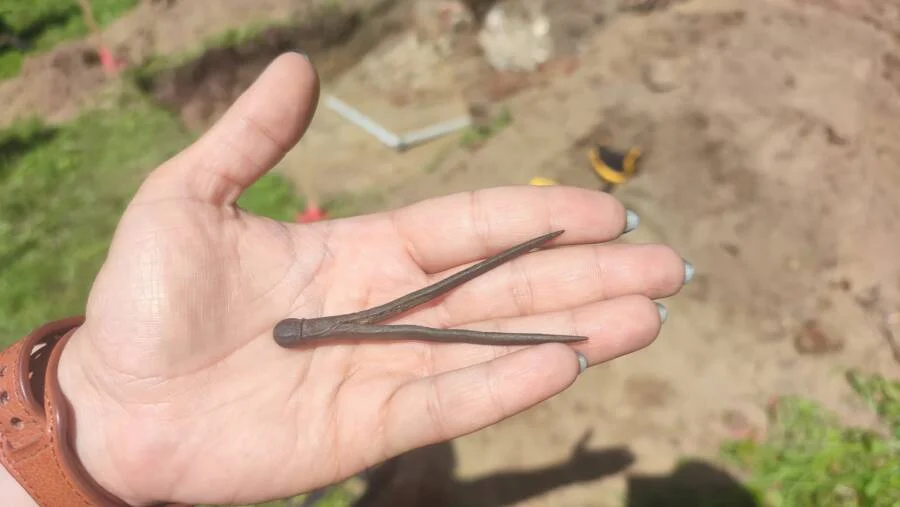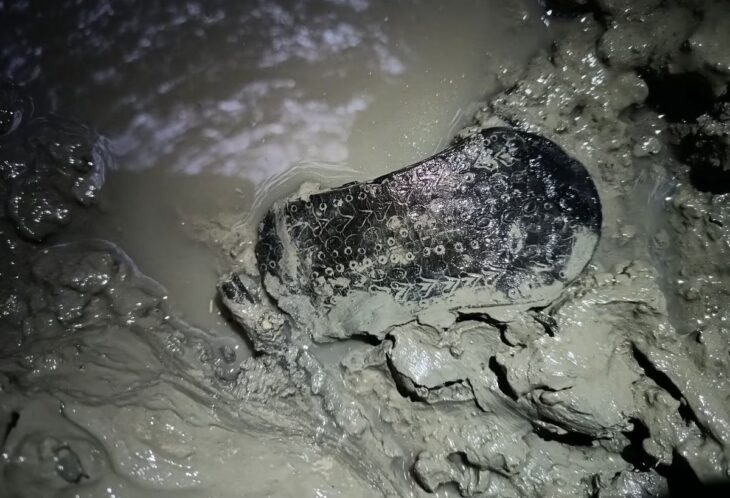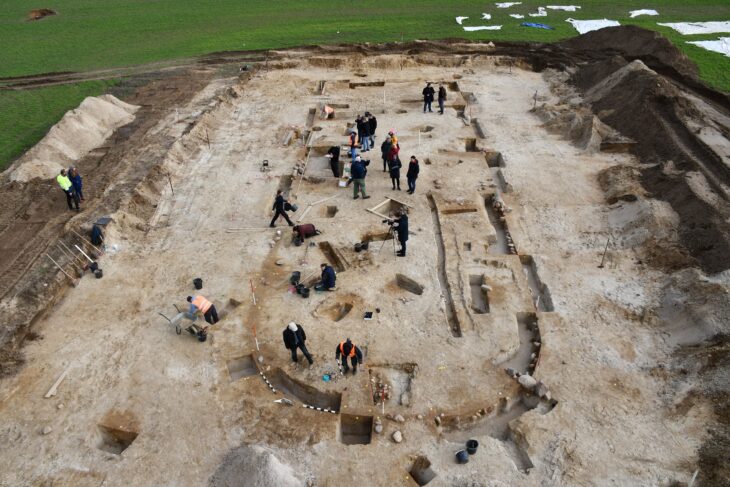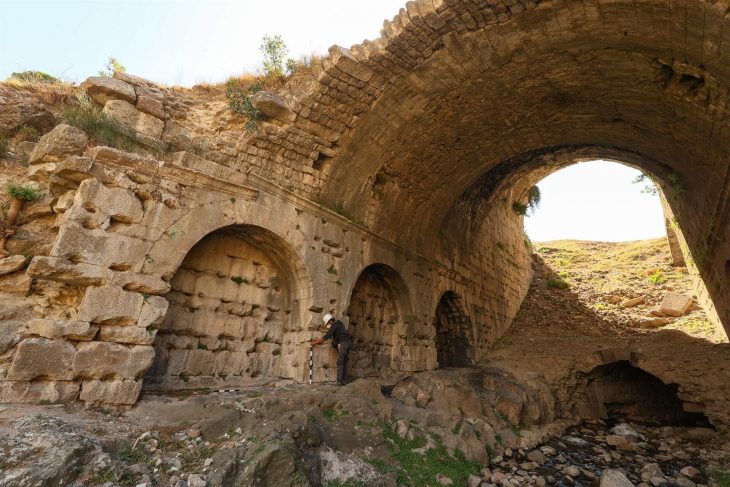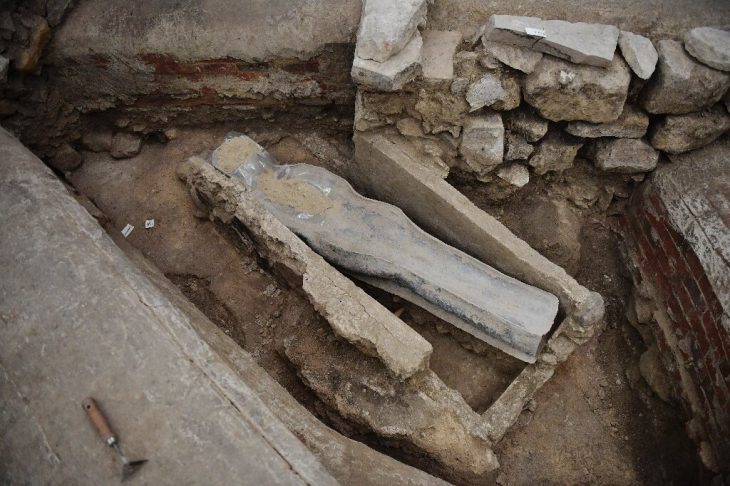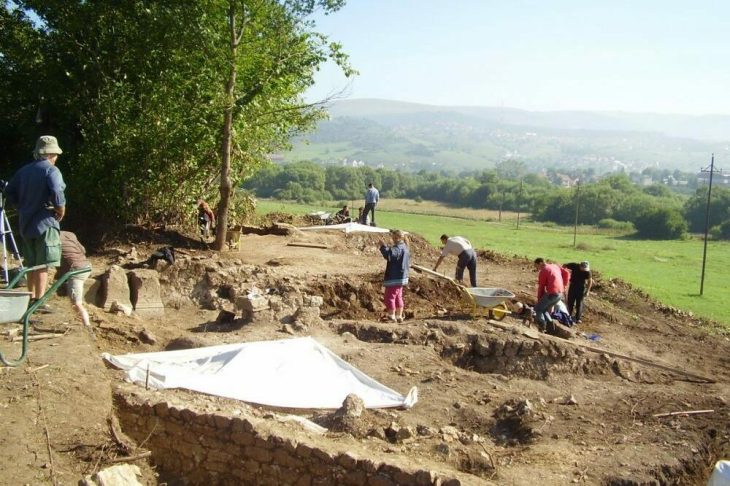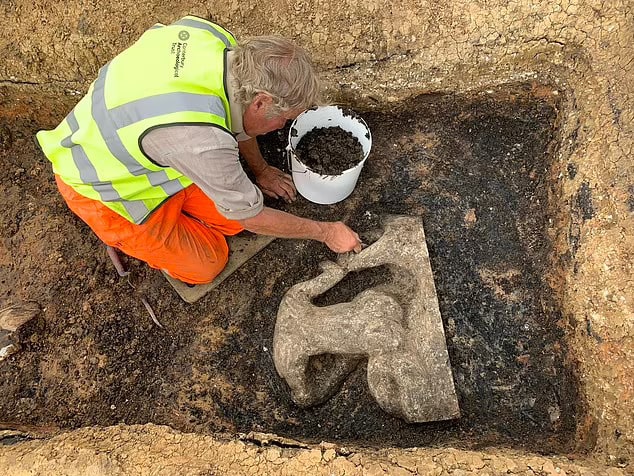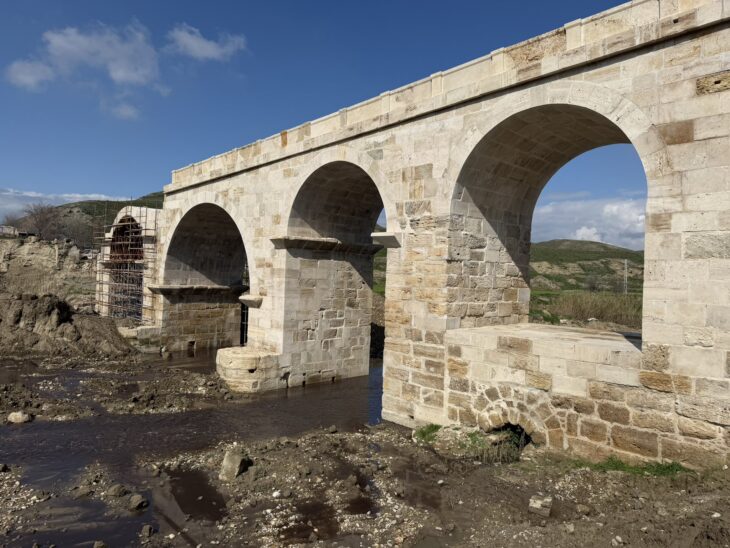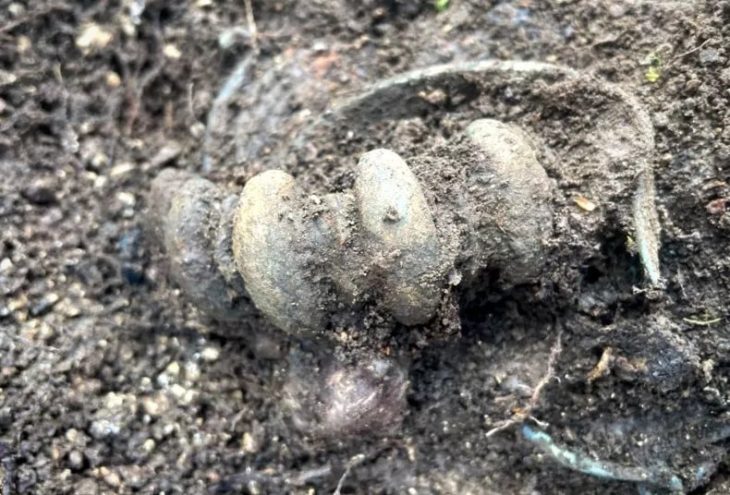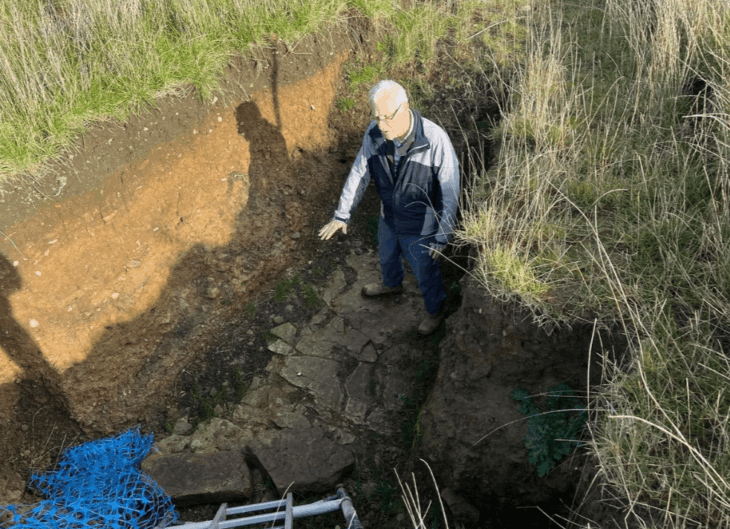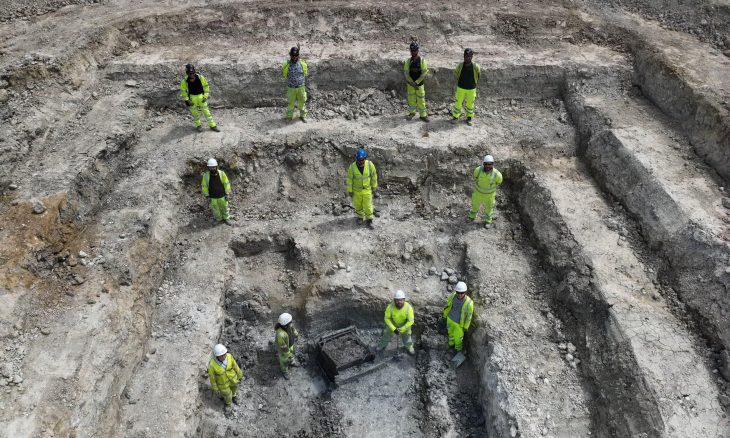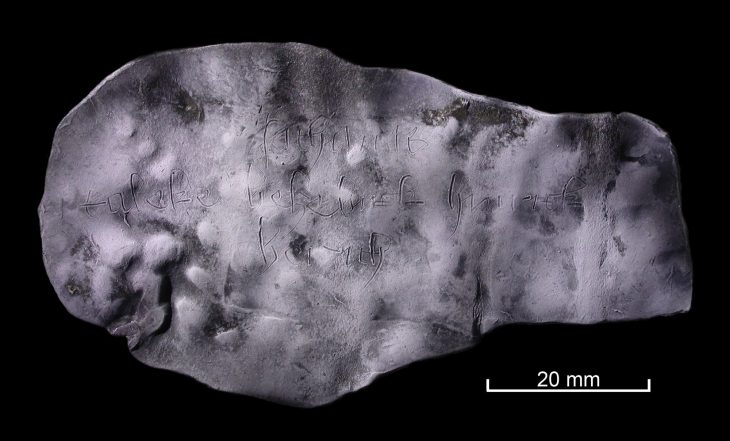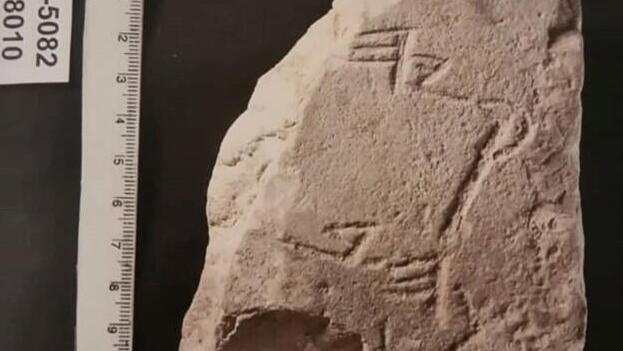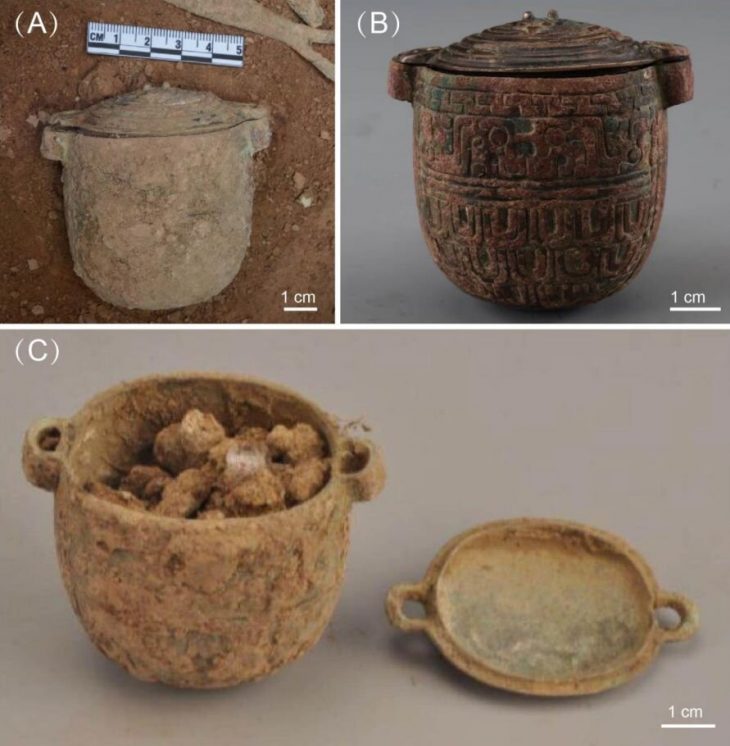Researchers have discovered a 16th-century compass that is thought to have been used by astronomer Nicolaus Copernicus in the canonical gardens of Frombork, northern Poland, during a recent archaeological dig.
Copernicus is famously known for his heliocentric theory, which posited that the Sun is the center of the solar system and the planets orbit around it, as presented in his work De Revolutionibus Orbium Coelestium. Copernicus, who served as a canon at the Frombork cathedral, lived in the town for nearly 30 years, conducting his clerical duties and astronomical observations.
Nicolaus Copernicus famously wrote himself into history by looking up at the sky and speculating that the Sun, not the Earth, was at the center of the universe. Now, researchers from Warminska Grupa Eksploracyjna, an amateur archaeological exploration group in Poland, have made a discovery about Copernicus himself by looking at the ground.
The compass, which was made of a copper alloy, was discovered buried under the gardens of the northern Polish cathedral known as the Archcathedral Basilica of the Assumption of the Blessed Virgin Mary and Saint Andrew, or Frombork Cathedral.
The Warminska Grupa Eksploracyjna posted a description of their amazing discovery along with the steps that led to it on social media. Using a method that has proven invaluable in archaeological digs for its ability to reveal hidden structures without disturbing the earth, ground-penetrating radar was used to investigate beneath the cathedral’s grounds.
📣 Our WhatsApp channel is now LIVE! Stay up-to-date with the latest news and updates, just click here to follow us on WhatsApp and never miss a thing!!
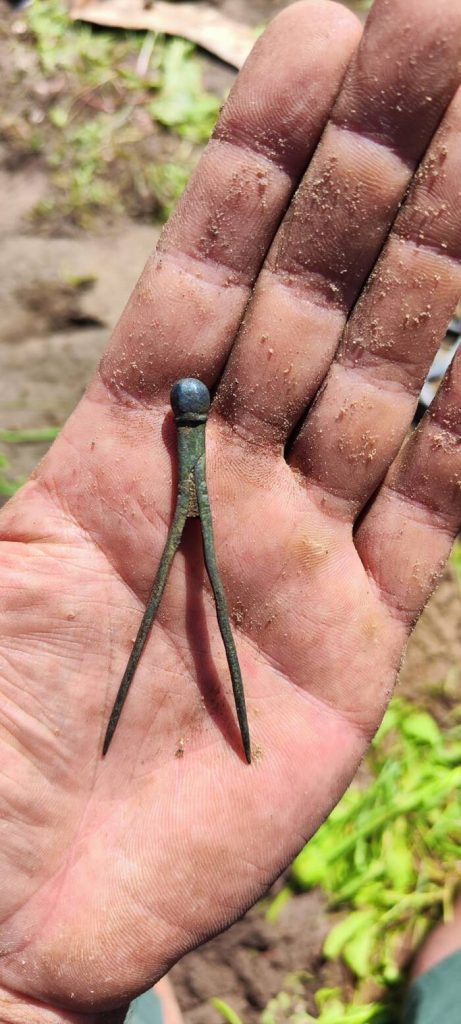
The compass was discovered in a trial pit that also revealed a corner of a now-nonexistent canonry and the entrance to its partially collapsed cellars.
“In the garden where Nicolaus Copernicus made his astronomical observations, we found a compass dating back to the beginning of the 16th century,” stated Misja Skarb, a member of the Warminska Grupa Eksploracyjna, wrote on Facebook. “This incredible discovery not only takes us back in time to the period when Copernicus was making his groundbreaking discoveries, but also opens up new possibilities to understand his methods of working.”
Even though there isn’t enough proof to say that Copernicus used the compass himself, the circumstances surrounding its discovery point to a close relationship.
The compass is the third of its kind to be found in Poland, and the second to be found in Frombork’s gardens. According to an employee from the Nicolaus Copernicus Museum in Frombork, Zorjana Polenik, the compass “could have belonged to Nicolaus Copernicus himself.”
The museum hopes that conservation services will eventually add this artifact to its collection.
Cover Image: The compass is made of copper alloy and dates back to the 16th century. Photo: Warmińska Grupa Eksploracyjna/Facebook

